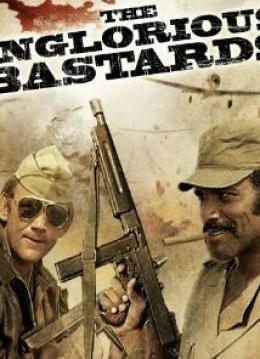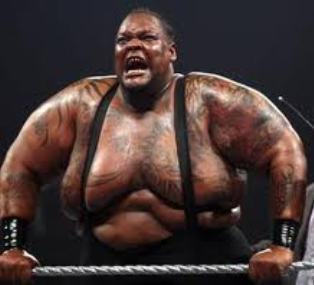INGLORIOUS BASTARDS: Is Independent Filmmaking illegitimate?

Poster from the original Inglorious Bastards film.
Last week, in the State of Black Science Fiction group, another minor kerfuffle – oh yeah, Black speculative fiction authors and fans do love their heated discourses – occurred after Milton Davis – oh yeah, fifty-something chemist / author / publishers do like to set it off – posted this status:
“Apparently if you are self published you are not a legitimate writer. Wow.”
This statement was made in regard to another author, who said he was looking for Black women speculative fiction authors for a documentary he is doing, but only wanted “legit” authors: “I need MORE AFRICAN-AMERICAN WOMEN WRITERS of Science-Fiction, Fantasy or comics!!! To be considered for the documentary you need to have: been published by a legit publishing company (no self-publishers).”
The aftermath was – to put things lightly – passionate…yeah, that’s it. Passionate.
I will say, the “offending” author did try to clear things up – kind of – and even went so far as to contact me personally to explain he meant “traditional”, not “legit,” which perplexed me a bit because my only comment on Milton’s status was “Name NAMES, Milton!” Y’all know me…I’m a researcher and researchers, by nature, are a curious lot.
Anywho, i know you’re dying to see what was said in response to Milton’s comment. Here are a few of those responses – the names, however, are not included to protect the (not so) innocent:
“So if I’m an indie singer, I’m not legitimate? If I’m an indie film maker, I’m not legitimate? If I’m Indie Jones, I’m not a legitimate archaeologist and college professor?”
“They’re just mad because we won’t go away–and we’re stealing away their readers.”
“That’s just bougie perpetraters using their status to over inflate their already bloated egos, to the detriment and baseless shaming of others.”
“ Hmmm…that’s funny. My royalty checks seem to be legitimate.”
“That’s bs!”
In response, the “offending author” had this to say:
“For the sake of clarity and common sense, I must make something known – Earlier today I posted a call for Black Women writers for my documentary Brave New Souls. I used the word “legit” instead of “traditional” when describing the criteria for my interview subjects. Somehow, that has been construed as a slight against self-publishers and that isn’t the case at all. So let me be as clear as possible here:
1) I want to use Black creators who have mainstream credits because there is a great misconception and lack of awareness about the presence of Black writers within the mainstream entertainment industry. I wanted to show aspiring talent that they CAN make it in the mainstream industry and that it doesn’t require “selling out” or compromising your value system.
2) Roughly 60% of my extremely limited literary entertainment budget is spent on self-published and independent material from Black creators. Let me repeat, 60%. If you don’t believe me ask the hundreds of Black creators I’ve met at conventions over the last 15 years whether or not I put my money where my mouth is. Ask folks like Thaddeus Atreides, Ray Height, Daniel McNeal, Jaycen Wise, etc.
3) I also spend a ton of time mentoring people behind the scenes. I have an entire FB group dedicated to the mentoring of writers of all backgrounds and I rarely talk about what I do because I don’t need to pat myself on the back.
4) Brave New Souls is my documentary, and I can do whatever I wish with the material.
I hope that clears things up, otherwise, most of you know how to find me, and if you still have a problem, I will be at the Hollywood Black Film Festival from Oct 2 – 6 and at NY Comic Con hanging around the Lion Forge booth from Oct 10 – 13. Feel free to approach me to discuss the matter. “
So, this is what was said by a few of his associates and friends:
 “lol. Don’t mess with the big dog. Ya might get bit.”
“lol. Don’t mess with the big dog. Ya might get bit.”
“Whenever someone steps up, someone else has to find something wrong.”
“4) Brave New Souls is my documentary, and I can do whatever I wish with the material.” That’s all you needed to say.”
“Did E*****n just pull a ‘Tony Stark from Iron Man 3′-move? ‘Here’s my address, come find me!!’”
“You haven’t seen his arsenal yet…”
“Seems nowadays people are in search of reasons to be pissed–not ways to make things work well… leaping beyond these words in order to give yourself (an in-general “yourself”) a perpetual underwear knot–& ignoring an avalanche of counter-balancing evidence–is small-minded. I’m less & less patient with this approach to life as I get older.”
This little skirmish set my thoughts in motion and, since I am in nearing the end of production on the Steamfunk feature film, Rite of Passage, I pondered whether the same beef – indie vs. mainstream – exists in the world of film?
As early as 1908, independent film has been paving the way for filmmakers to fight the corporate way of creating their art form. Around 1924, a group of independent filmmakers in Europe created the London Film Society. This group was the first to preserve the artistic nature of filmmaking. Some of the founding members included H.G. Wells and Charlie Chaplin, film directors who began a revolution with their movie making.
In a short time, independent filmmakers all over Europe were introducing new and exciting genres to their movies, such as horror and suspense. After World War II, science fiction was introduced by independent filmmakers to the American audience.
A new wave of American filmmakers began creating films outside of the control of the corrupt major studios and a Golden Age of independent films began.
For these independent filmmakers, the best way to showcase their work was at local film festivals.
 One such festival, The Sundance Film Festival, run by Robert Redford’s Sundance Institute, began as the Utah / U.S. Film Festival in 1978. The festival – founded by Brigham Young University Film School graduate, Sterling Van Wagenen and Utah Film Commissioners, Cirina Hampton Catania and John Earle – showcased independent films created in the United States.
One such festival, The Sundance Film Festival, run by Robert Redford’s Sundance Institute, began as the Utah / U.S. Film Festival in 1978. The festival – founded by Brigham Young University Film School graduate, Sterling Van Wagenen and Utah Film Commissioners, Cirina Hampton Catania and John Earle – showcased independent films created in the United States.
In 1985, Redford’s institute took over management of the festival and changed the name to Sundance. In 1991, the Sundance Institute bought the rights to the festival and officially changed the name to the Sundance Film Festival. Since then, Sundance has included international independent films in its screenings and has launched the careers of some of today’s hottest directors such as, Quentin Tarantino, Robert Rodriguez, James Wan and Jim Jarmusch.
Viewed as the leader in independent filmmaking, the Sundance Film Festival innovates ways to help small productions gain mainstream notoriety.
Last year, this festival brought Utah $92 million dollars in revenue, further cementing both the importance of the festival and the films that it showcases.
But what, exactly is an “independent film”, you ask?
 An independent, or indie, film is one that is primarily funded outside of the major studios, also known as “the Big Six” – Warner Brothers, Paramount, Walt Disney, Columbia Pictures, Universal Studios and 20th Century Fox.
An independent, or indie, film is one that is primarily funded outside of the major studios, also known as “the Big Six” – Warner Brothers, Paramount, Walt Disney, Columbia Pictures, Universal Studios and 20th Century Fox.
Independent films have the freedom to explore many subjects in society that are seen as taboo or unmarketable by the Big Six.
Most independent films achieve nothing more than critical acclaim at film festivals, but every once in a while, an indie film creates such a loud buzz at a film festival that it is purchased by a major film studio and screened in major theaters all over the world. One such film is The Blair Witch Project, which screened at the Sundance Film Festival on January 23, 1999. Writers-Directors Daniel Myrick and Eduardo Sanchez, who made The Blair Witch Project for $25,000, had sold their movie, by the end of the festival, to Artisan Entertainment for 1.1 million dollars. Artisan then went on to make $248 million with this “little” independent film!
However, when an indie film hits the “big time”, like The Blair Witch Project, it is no longer considered to be an independent film because, even though the film was produced on a shoestring budget, the marketing budget that Artisan Entertainment implemented when they purchased the film put The Blair Witch Project way over the 50% funding category.
While, technically, the Blair Witch Project is no longer considered an indie film, it possesses one characteristic that most certainly sets it apart from “mainstream” films, a characteristic that films produced by the Big Six will never have – the willingness to take risks with their storytelling.
The Big Six film studios are large corporations, and corporations of that size do not allow risk-taking in their business practices.
They will only invest in actors and stories that have already been proven to make a lot of money. This may lead to financial success, but also leads to creative stagnation.
Independent films are about original and creative story-telling by filmmakers who are not afraid to try new techniques or put their creative and financial necks on the line.
Are they legit? Hell yeah!
Are they traditional? Well, since the definition of traditional is ‘existing in or as part of a tradition; long-established‘, “Hell yeah,” to that too!
Disagree?
I will be at the Alien Encounters Black Speculative Fiction, Film and Art Conference October 25 – 27. Feel free to approach me to discuss the matter.
Did I, like that “offending author”, just pull a ‘Tony Stark from Iron Man 3′-move?’
Well, we Black speculative fiction authors do love our heated discourses.





